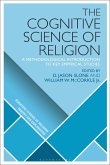One does not normally relate neurology, cognitive theory, and Christian theology. We have been taught that psychological models of personality should replace outdated theological notions, while neurology uses solid, empirical data from the brain to re-examine psychological models. This book presents the thesis that these three fit together quite well, and that the resulting structure is consistent with the thinking of math and science. The starting point is a cognitive model known as mental symmetry. This model began as a list of seven 'spiritual gifts' from the Biblical book of Romans, was expanded into a system of cognitive styles through an extended study of biographies and then mapped onto brain regions, and has been tested with several decades of observation and analysis of human personality. A cognitive model makes it possible to ask how the mind could function and to work out the steps that are required to get all aspects of the mind to function in an integrated manner. It appears that embodiment causes the mind of the child to function in a manner that is fragmented and incomplete, as described by Piaget's cognitive stages. This book analyzes the process of reprogramming the childish mind so that it functions in a more complete manner. Interaction between different aspects of the mind will naturally cause a concept of God to emerge, and the type of divine concept that forms will depend upon how the various aspects of the mind are functioning and interacting-regardless of whether such a God actually exists or not. If the mind functions in an integrated manner, then the concept of God that forms is that of a Christian Trinity. Incarnation can be analyzed as an internal struggle to integrate abstract technical thought with concrete technical thought, illustrated by the deep relationship between math and science. Far from being an incomprehensible mystery, it appears that a concept of incarnation will naturally emerge when the most rational aspects of human thought are integrated. Similarly, the Christian 'prayer of salvation' can be analyzed from a purely cognitive perspective as a method of mentally viewing a concept of God indirectly through a concept of incarnation. The conflict between science and religion can also be seen from a cognitive perspective as a struggle between two incompatible methods of defining belief, reinforced by the system of thought that each side sets up in order to preserve its method of defining belief. If one distinguishes between the structure of the mind and how the mind interacts with the external environment, then it is possible to analyze life-after-death as existence as a disembodied mind, and one can also explain the spiritual and angelic realms as the same mind being placed within a different environment. The final section of this book contains a 70 page overview of the latest findings in neurology, covering all the major cortical and subcortical regions of the brain, and quoting from almost a hundred recent papers. It is shown that there is a detailed correspondence between the personality traits that were discovered using the theory of mental symmetry and the functions of different brain regions. This volume is a significant clarification and expansion of the previous book, God, Theology, and Cognitive Modules, that was written in 2012, and this cognitive model has been presented at several academic conferences since the publication of that book.
Hinweis: Dieser Artikel kann nur an eine deutsche Lieferadresse ausgeliefert werden.
Hinweis: Dieser Artikel kann nur an eine deutsche Lieferadresse ausgeliefert werden.








